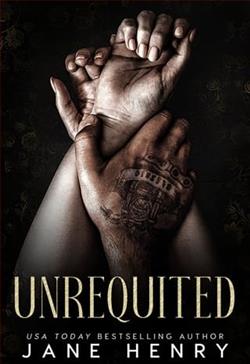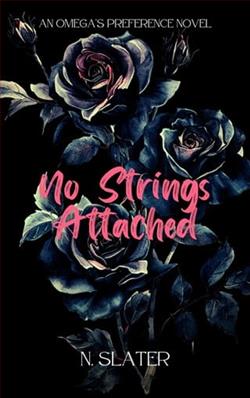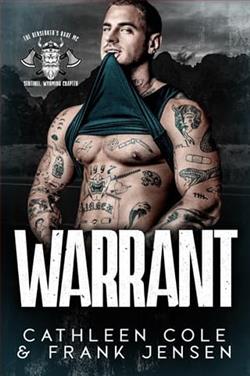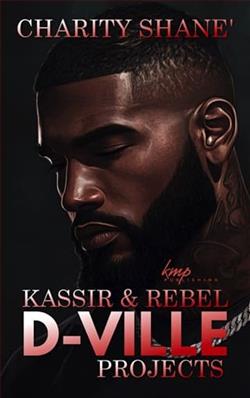Page 3 of Velvet Betrayal
“Hey, watch where you point that thing,” he said, holding up a hand. “You don’t want Rosie to come down here and wonder what’s going on.”
I set the knife down.
“She’s a smart girl,” I said. “She’s going to figure out something is wrong if you keep withholding my phone.”
His eyes dropped, just for a second, like he hated that he still wanted me to trust him.
“You’ll get it back,” he said. “Promise. Just let this settle.”
Every cell in me wanted to hate him, but the truth was that Kieran Callahan never lied to me. Or, if he did, the lie was always circled in neon, visible and engineered for maximum effect.
It was easy, with men like that: you only had to read between every line.
“Fine,” I said.
The apple’s flesh browned in the moment, and I threw the wedge in my mouth, chewing with the anger of someone trying not to cry. He smirked, a little—one of those edgewise, off-brand things he did when he thought I was being childish.
I hated that part of me still felt safer with him than without him.
I hated that part of me wanted to hand him the knife and ask him to cut me free.
I hated that part of me wanted him to kiss me, phone or no phone.
He stood up and walked to me in the kitchen. “You go and settle in,” he said. “At least take your coat off. I’m making dinner.”
“How long are we going to be here, Kieran?”
“Until I can make sure you’re safe.” He paused at the edge of the breakfast nook. "Two days, maybe three. Tops."
I willed myself to nod, and not to think about how three days could become years in the Callahan world, or how safety was never a real thing. A hunger for explanation gnawed at me, but there was Rosie—high-pitched shrieking cackles from upstairs, the sound of pure childhood—a sound so at odds with this abduction. If it was an abduction. Could one still be 'abducted,' technically, when the kidnapper was your daughter’s father and the safehouse was essentially a vacation rental in Otis?
I mean, yes. Legally, you definitely could. I knew that.
But emotionally—who could argue this one in court?
I pressed the heel of my hand to my eye until the black spots faded. Kieran was already digging through the cabinets—needing to do something, as always.
That was what I admired and feared about him: how effort and ease looked the same on him. How every choice came from that tight coil of certainty.
I left the kitchen, boots squeaking on the laminate, counting the stairs to hold off the tears. We were both faking normal for Rosie.
Both trying.
The stairs opened onto a plain carpeted hallway, everything too neat, too symmetrical. To the left, the master. To the right, two other doors—one closed, one cracked. Dusk glowed through the east window. I found Rosie in the middle of a king bed, limbs sprawled like she’d dropped there. Blankets everywhere. She spotted me and, without missing a beat, rolled over and started pelting me with pillows.
“Hey! Ambush!” she shrieked.
One struck me square in the chest, knocking a grunt from me. “What kind of greeting is that, soldier?” I scolded, but I let a grin edge out.
She giggled, cheeks flushed. Her jacket was already off, hanging from the bedpost. I grabbed a pillow, held it up, considered my odds: brute force or psychological warfare, but either way, it would end in shrieking.
Rosie, for once, sensed my mood and went quiet. She just lay there, arms wide, breathing hard. I set the pillow aside and sat on the edge of the bed. “They’ve got the heat on full blast. Bet you can’t outlast me.”
She reached across my lap for my hand, her grip strong and sticky. “Are we really staying here?” she whispered.
I smoothed her hair, which was already generating its own static field. “For a little while. We’ll go home soon.”
“Okay. Because I told Daddy we’d go to the city together. I want to see the tree at Madison Square Garden.”















